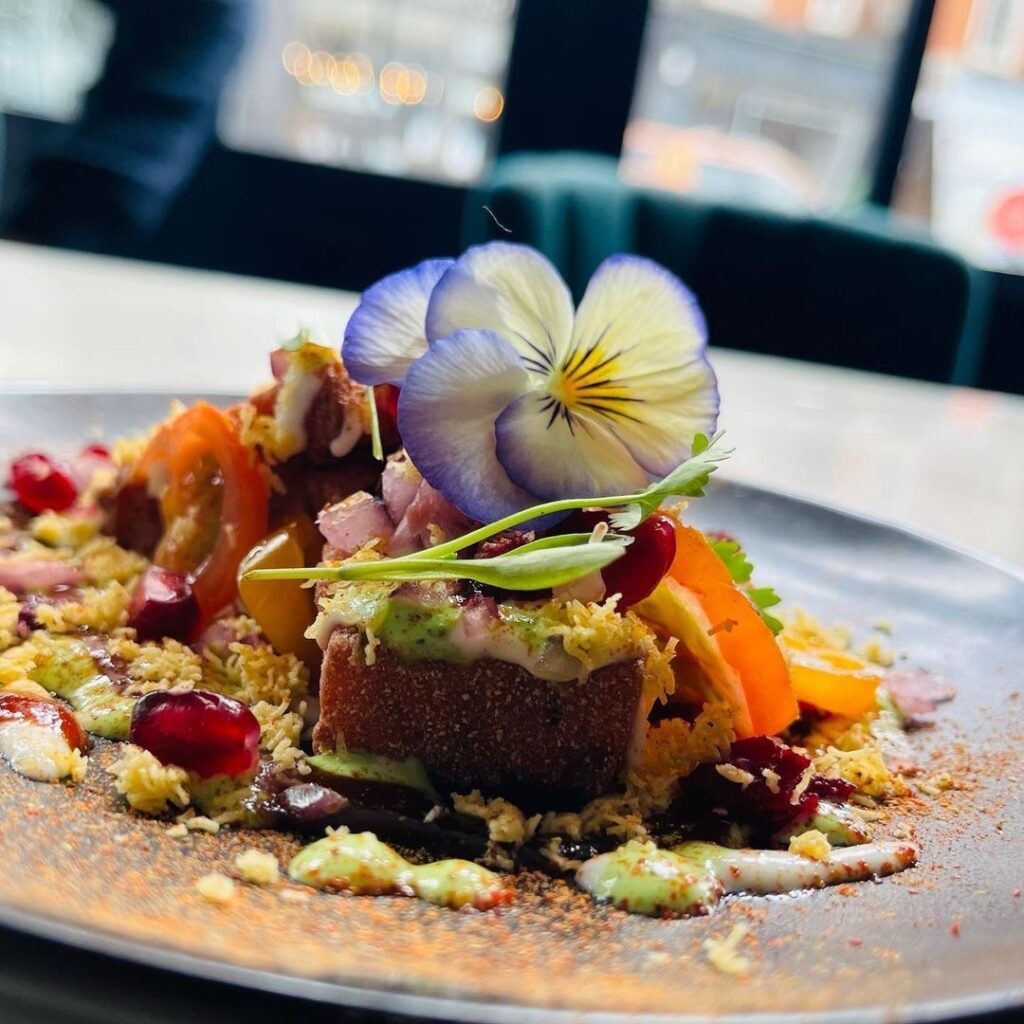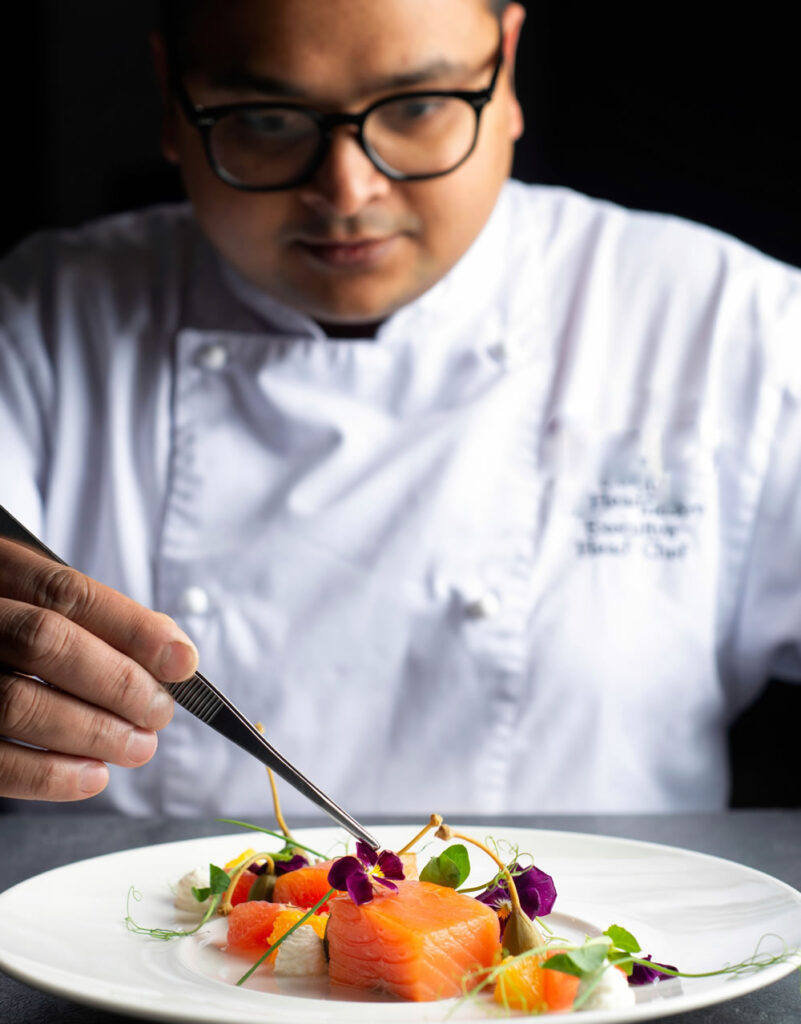By Sujany Baleswaran
Omkar Mestry’s culinary journey began as a young boy, circling his mother and grandmother, entranced by the flavours and aromas of his favourite dishes. Weaving flavours and creativity onto a plate, Omkar has led kitchen brigades at some of the most renowned restaurants in London, with his recent culinary takeover of Novotel London. We spoke to the esteemed chef about lockdown recipes, sustainability, veganism and the bright future of cooking.
I started missing the adrenaline rush in the kitchen, meeting different customers, the camaraderie of my team, and the feeling of being in my element..
Where did your passion for cooking begin?
My journey to becoming a chef wasn’t a deliberate or calculated choice but something that came very naturally with ease. I have always been a foodie, and even when I was a little boy, food was the most exciting aspect for me at any special occasion or festivals. I had (still do) certain favourite dishes, and every time my grandmother or mother would make them, I would loiter around the kitchen anxiously waiting to be the first one to taste them. Such fond memories!
The pandemic had a major impact on restaurants, with many restaurants creating a takeaway system to stay afloat. What changes did you have to make to adapt to these changing rules? Did it give you more time to experiment with new recipes?
In this industry, we work such long hours, it’s difficult to keep that work-life balance and quality family time is something that we all crave. I did too, immensely. So in the first few weeks, I found the time off as a welcome break. But then, as the days passed, I started missing the adrenaline rush in the kitchen, meeting different customers, the camaraderie of my team, and the feeling of being in my element. Slowly it started getting difficult as the lockdowns continued, and then came the redundancy which was a big blow to my spirits. But what kept me going was the immense positivity and support that I got from my family and friends. I decided to find solace in going back to my Indian roots and started re-learning and making authentic curries, stir fry, snacks, biryanis – I can now say that I have become a far better and grounded chef than I was before Covid started.

Creativity and cooking go hand in hand. What does your recipe creating process look like? What are the key aspects you consider when creating a new recipe?
For me, the process starts by looking at the trends, what’s available in season and locally, what can you experiment with and how different can the presentation be.
There has been an increase in veganism, with many restaurants providing at least one vegan option. What is your take on veganism? What does the future of cooking look like?
I have a lot of respect for people who make conscious lifestyle choices. It takes immense self-control and determination to abstain from animal by-products, not just in food but in everyday living. Restaurants have such a wide customer base that it becomes difficult to have 100% inclusivity to cater to every single choice. But with increasing awareness, there seems to be a clear paradigm shift towards more local, sustainable produce, and I think as long as we continue to adapt and change with time, the future of cooking is very bright.

Many businesses, including restaurants, are embracing sustainability, setting them apart from other businesses and attracting more customers with their eco-friendly approach. How do you think restaurants can implement sustainability in their business, whether that’s reducing their carbon footprint or food wastage?
There are so many simple, small yet effective steps a restaurant or any food business can take to make an impact on the environment. We can start with re-designing our menus by limiting or reinventing the recipes that contain red meat and substitute with poultry, controlling portion sizes to reduce food wastage, sourcing locally and focusing more on the seasonal produce, making imperfect vegetables in a perfect way, rather than throwing it away, have meat-free days, limiting the use of plastic, starting their own herb gardens or rooftop veggie rooms, and we can start using more energy-efficient appliances. There is so much, we just need to start somewhere.
What is your signature dish? Which dish do you enjoy creating the most?
I don’t believe in signature dishes, as everything I make is made with equal love and passion and comes straight from the heart onto a plate. However, one dish I particularly enjoy making is a dessert fusion – Coconut Barfi, Mango Passion Curd, Mango Caviar, Creme Chantilly, Pistachio Dust And Gold Leaf.


